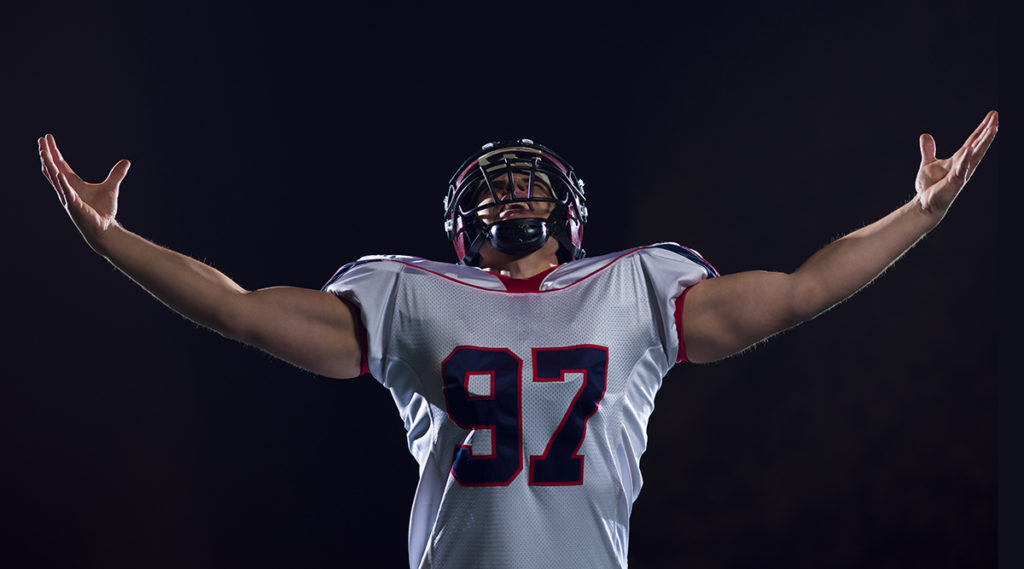There’s a reason football players come in all sizes.
And, yes, as a matter of fact, this has a lot to do with your money…especially in retirement.
Whether you are a football fanatic experiencing the post-Super Bowl blues or someone who could care less about the sport, nearly everyone realizes football players come in large, extra-large and “oh my gosh can anyone be that large?” sizes.
The really large guys play on the line, facing one another. They average 6’5”, 315 lbs.
The middle-weight guys (linebackers, defensive ends, tight ends and running backs) are generally of similar height but are smaller – only 225 to 250 lbs! They’ve got to be able to move quickly to survive the impact of being struck by another player of similar size and speed.
Then there are the “little” guys – wide receivers and defensive backs. These guys are typically about 6’0” 200 lbs and fast. Really fast.
Finally, each team has a small crew of “specialists.” These are kickers and punters. While extremely valuable to the team, they rarely make contact with another player, so height, weight, and speed are not much of a consideration for them.
Now, one way to approach the above information is to summarize that the average NFL player is 6’2” and 245 lbs.
But if I tried to field a team of men who all stood 6’2” and weighed 245 lbs., my team would likely not win a single game.
Because football is a game of specialization and extremes. The movements of the different players must be carefully coordinated and well-timed, but the players are anything but interchangeable with one other.
Tyreek Hill (receiver for the Super Bowl champion Kansas City Chiefs) is perhaps the fastest man playing football today. But his speed would do him little good if he was face to face with north Louisiana’s favorite football son Andrew Whitworth (offensive tackle, Los Angeles Rams). Whit stands 6’7” and weighs 310 lbs. He might not be able to beat Tyreek in a footrace, but he could keep the little speedster from getting anywhere near his quarterback.
Oh yes, I did promise to tell you why this is relevant to your money, especially your retirement.
Retirement is like football…the demands of the sport require players of differing abilities and characteristics.

Whether conscious of this fact or not, everyone entering retirement faces different and competing demands for what their retirement money must do. I call this set of retirement choices the “Retirement Triple Play.”
Income. First, it must provide an income. Hopefully, that income is highly consistent and will never run out.
Contingencies. Second, retirement money may have to meet occasional and unforeseen demands for additional money. This could be a new car, a new roof or a nursing home stay.
What happens if you are taking money out of your nest egg and you have to withdraw an extra $75,000 to $100,000 per year to pay for long-term care expenses for your spouse? Any chance that might have an impact on how long that money might last?
Legacy. Do you want to leave anything behind after you die? Do you want to make sure your spouse is taken care of financially? How about your children? Is there a church or charity you’d like to impact long-term?
If all your money gets spent funding your own needs for income and contingencies, the amount you have left for any legacy is zilch.
What I usually see when clients first come in is the average, one-size-fits-all-retirement-needs approach. The thought is “I can best meet my retirement needs by putting all my eggs in a retirement account.”
Unfortunately, this often leads to a situation where a choice must be made to spend less or run out of money too soon.
Careful planning with a view towards specialization can prepare you to win the retirement game.
Argent Advisors, Inc. is an SEC-registered investment adviser. A copy of our current written disclosure statement discussing our advisory services and fees is available upon request. Please See Important Disclosure Information at https://ruston.argentadvisors.com/important-disclosure-information

